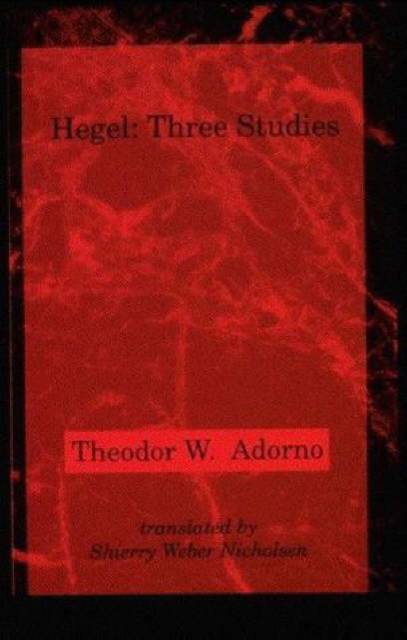
Nos liseuses Vivlio rencontrent actuellement des problèmes de synchronisation. Nous faisons tout notre possible pour résoudre ce problème le plus rapidement possible. Toutes nos excuses pour la gêne occasionnée !
- Retrait gratuit dans votre magasin Club
- 7.000.000 titres dans notre catalogue
- Payer en toute sécurité
- Toujours un magasin près de chez vous
Nos liseuses Vivlio rencontrent actuellement des problèmes de synchronisation. Nous faisons tout notre possible pour résoudre ce problème le plus rapidement possible. Toutes nos excuses pour la gêne occasionnée !
- Retrait gratuit dans votre magasin Club
- 7.000.0000 titres dans notre catalogue
- Payer en toute sécurité
- Toujours un magasin près de chez vous
Description
This short masterwork in twentieth-century philosophy provides both a major reinterpretation of Hegel and insight into the evolution of Adorno's critical theory. The first study focuses on the relationship of reason, the individual, and society in Hegel, defending him against the criticism that he was merely an apologist for bourgeois society. The second study examines the experiential content of Hegel's idealism, considering the notion of experience in relation to immediacy, empirical reality, science, and society. The third study, "Skoteinos," is an unusual and fascinating essay in which Adorno lays out his thoughts on understanding Hegel. In his reflections, which spring from his experience teaching at the Goethe University in Frankfurt, questions of textual and philosophical interpretation are intertwined. Rescuing the truth value of Hegel's work is a recurring theme of the critical theory of the Frankfurt School, and nowhere is this goal pursued with more insight than in these three studies. The core problem Adorno sets for himself is how to read Hegel in a way that comprehends both the work and its historical context, thereby allowing conclusions to be drawn that may seem on the surface to be exactly opposed to what Hegel wrote but that are, nevertheless, valid as the present truth of the work. It is the elaboration of this method of interpretation, a negative dialectic, that was Adorno's underlying goal. Adorno's efforts to salvage the contemporaneity of Hegel's thought form part of his response to the increasingly tight net of social control in the aftermath of World War II. In this, his work is related to the very different attempts to undermine reified thinking undertaken by the various French theorists. The continued development of what Adorno called "the administered world" has only increased the relevance of his efforts.
Spécifications
Parties prenantes
- Auteur(s) :
- Editeur:
Contenu
- Nombre de pages :
- 208
- Langue:
- Anglais
- Collection :
Caractéristiques
- EAN:
- 9780262510806
- Date de parution :
- 29-09-94
- Format:
- Livre broché
- Format numérique:
- Trade paperback (VS)
- Dimensions :
- 134 mm x 202 mm
- Poids :
- 276 g







